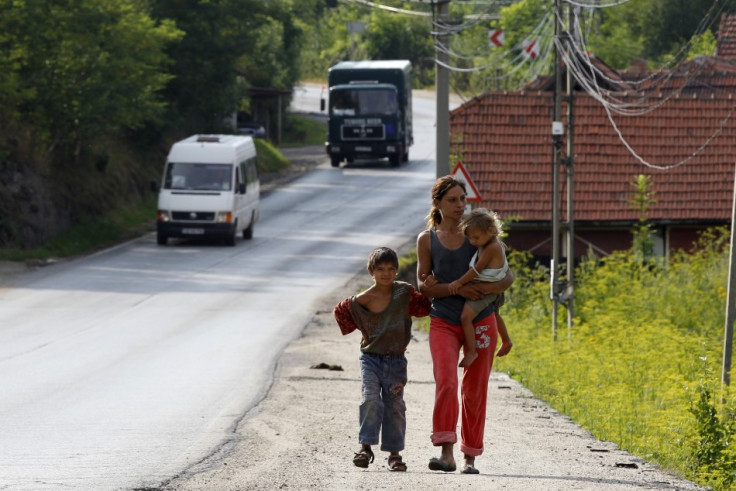One Third of Europeans Will Be in Poverty by 2025 – Oxfam

Almost a third of the European population will be dragged into poverty by 2025 due to the region's austerity measures, according to a report.
Charity organisation Oxfam said the austerity policies will create up to 25 million more poor people in Europe by 2025, bringing the total number of poor to 146 million, representing almost a third of the population.
In the UK, about 800,000 children and 1.9 million adults are expected to be pushed into poverty by 2020, according to the international agency.
In Europe, persons are considered at risk of poverty if their equivalised disposable income is below 60% of the average disposable income after social transfers.
Oxfam also warned that it could take up to 25 years for Europeans to regain the living standards they had five years ago.
"Austerity is making an already bad economic situation far worse in the UK and across large parts of Europe," Max Lawson, Oxfam's head of advocacy, said in a statement.
"Cuts to social security and public services are combining with falling incomes and rising unemployment to create a deeply damaging situation in which millions are already struggling to make ends meet."
Oxfam cited the example of the rising number of Britons who are in need of emergency aid from food banks, indicating the seriousness of the problem.
Rising Unemployment
European countries have undertaken widespread austerity measures, including government job cuts, low wages and raised tax rates, in order to tackle the credit crisis in the region. That has resulted in high rates of unemployment in the region, particularly affecting women and the young population.
In the European Union (EU), the number of unemployed people rose by 995,000 in July, compared with July 2012, according to Eurostat. The region's unemployment rate stands at 11.0% in July, up from 10.5% a year ago, with Greece and Spain recording the highest rates of 27.6% and 26.3%, respectively.
Oxfam estimates more than one million public sector job cuts in the UK by 2018.
Those who are employed are suffering from low wage rates, the charity said, adding that almost one in ten working households in Europe now live in poverty.
In the UK and Portugal, real wages are reported to have fallen by 3.2% over 2010-2012. The real value of wages in the UK is now at 2003 levels.
Italy, Spain, and Ireland all recorded decreases in real wages over the same period. In Greece, real wages declined by over 10%.
The Oxfam report says that the measures are failing to achieve their objective to reduce government debt. At the same time, they are widening the gap between the rich and the poor and stalling economic growth.
"The only people benefiting from austerity are the richest 10% who have seen their share of income rise whilst poorest have seen their share fall," Lawson noted.
"The UK, Greece, Ireland, Italy, Portugal, Spain - countries that are most aggressively pursuing austerity measures - will soon rank amongst the most unequal in the world if their leaders don't change course."
Oxfam also called on the EU finance ministers who are due to meet in Lithuania to take keep in mind the situation. It asked for measures such as taxing the wealthiest and cracking down on tax dodging in order to invest in public services such as health and education.
© Copyright IBTimes 2025. All rights reserved.






















